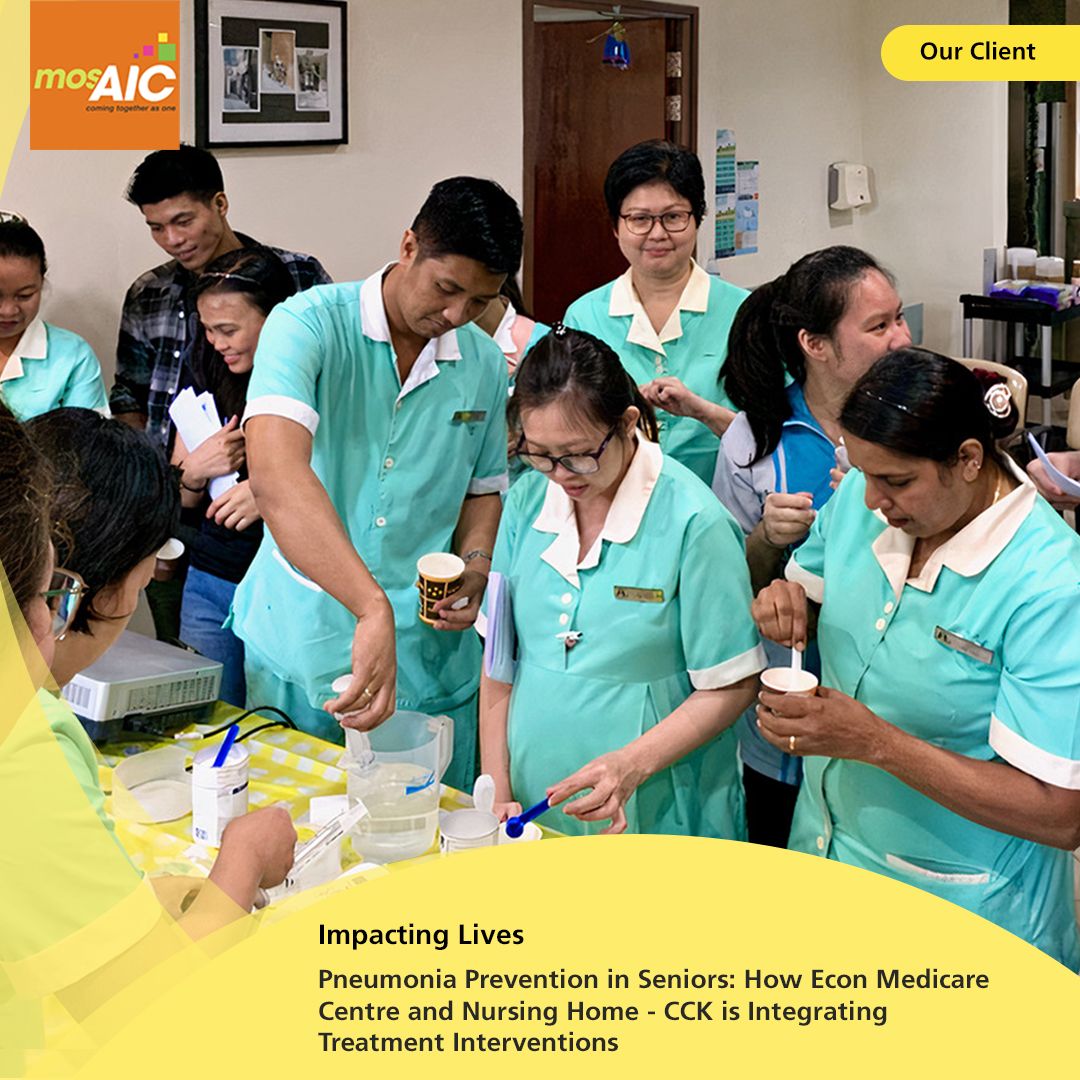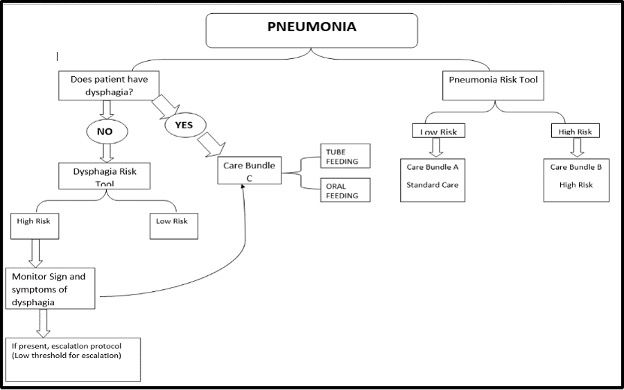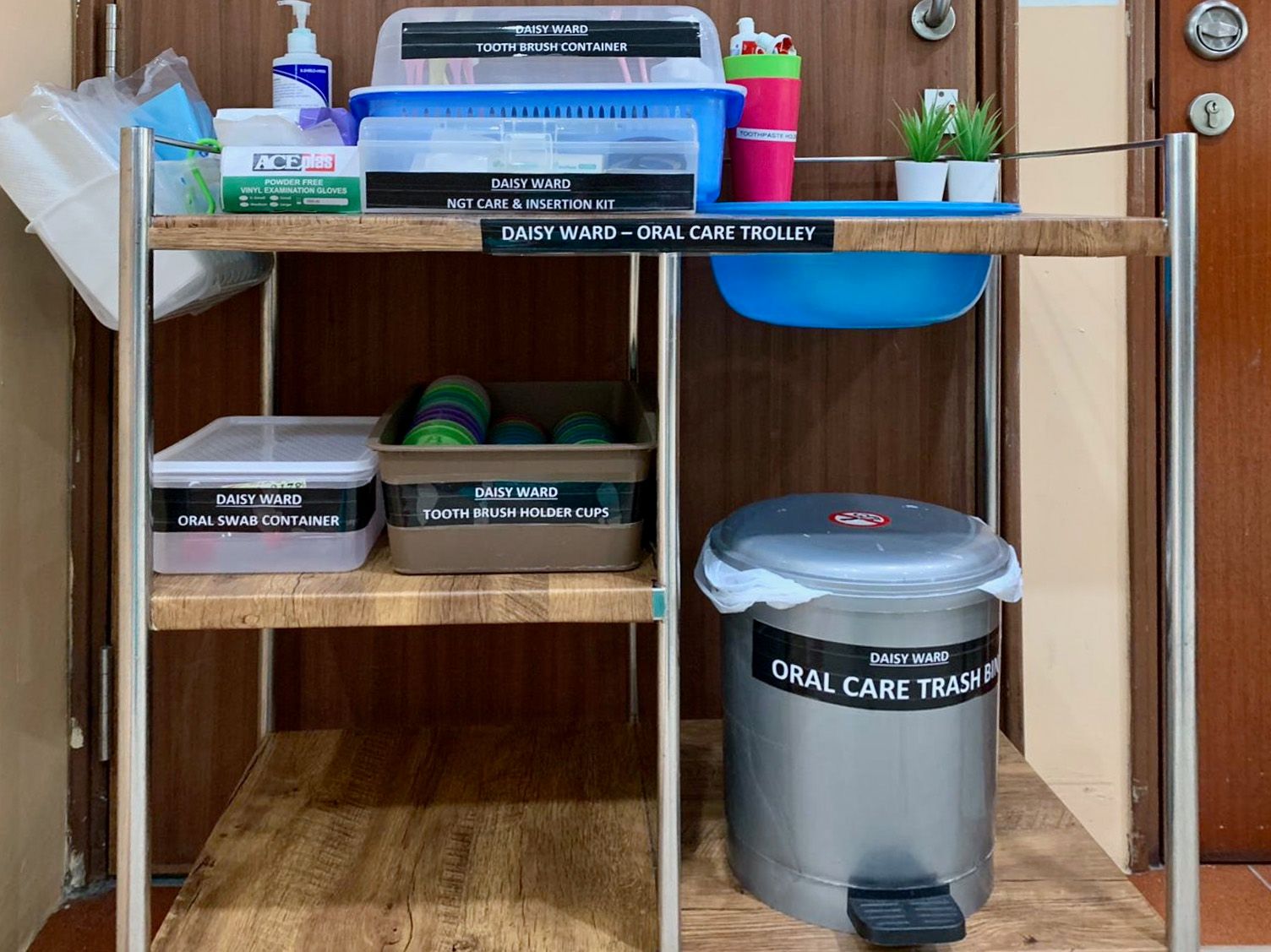Pneumonia Prevention in Seniors: How Econ Medicare Centre And Nursing Home - CCK is Integrating Treatment Interventions

In a bid to improve the quality of care and productivity in hospitals, nursing homes, communities or at home, our Community Care partners are constantly on a quest to improve the well-being and services for seniors in the community. With improvements in the quality of clinical care, more organisations are now able to better the lives of seniors in the long-term care sector. mosAIC explores how our partner is improving clinical care in their organisation.
Did you know that pneumonia is one of the leading causes of death among seniors around the world? In fact, between 2013 and 2017, pneumonia was one of the top three most common causes of death among Singapore residents aged 65 and above, accounting for 25% of deaths. Due to multiple comorbidities and risk factors such as dysphagia and oral health issues, seniors are more susceptible to pneumonia.
The illness can be challenging to diagnose and treat among seniors. The lung infection can progress rapidly, bringing about serious complications such as bacteremia, breathing difficulties or lung abscess.
The team at Econ Medicare Centre And Nursing Home - CCK (Econ CCK) recognised the prevalence of this condition amongst seniors in their nursing homes, and launched the CQI Pneumonia Prevention Project to reduce the incidence of pneumonia in their home.
The project was part of the Agency for Integrated Care (AIC)’s Pneumonia Prevention Collaborative, initiated in 2019, where Community Care professionals from nursing homes islandwide came together to learn and share knowledge on pneumonia detection and prevention. The collaborative is part of the ongoing Clinical Quality Improvement initiative.
Using insights from the shared learning sessions, the team at Econ CCK applied the knowledge to establish a holistic care plan for their residents.
The Econ CCK staff devised a comprehensive workflow, including key interventions, staff training and introduction of new services through the project.
Developing Pneumonia Interventions
Taking into consideration the varying health conditions of seniors in their nursing home and knowledge of staff, the team designed four key interventions.
1. Develop Screening Tools and Care Bundles
The team developed various screening tools to aid staff in detecting conditions such as dysphagia, pneumonia or even oral health issues. On top of that, a set of interventions, known as care bundles, were introduced to reduce the risk of pneumonia and improve residents’ quality of life. The four care bundles are:
a. Standard: Applied to all residents
b. High Risk: Applied to residents who are at high risk of developing pneumonia based on the Pneumonia Screening Tool
c. Dysphagia: Applied to residents who are at risk of developing dysphagia based on the Dysphagia Screening Tool, or to residents who currently have dysphagia
d. Oral Hygiene: Applied to residents at risk of developing or with oral health issues based on Oral Hygiene Screening Tool
The staff will decide on a suitable care bundle for a senior based on a few factors, illustrated in the chart below.

2. Construct an Oral Care Trolley, and Devise A Oral Hygiene and Dental Care Workflow
There are many oral health issues that come with ageing, and many intersecting comorbidities can contribute to deteriorating oral health. Hence, maintaining a good oral care regimen is especially crucial for seniors.
The Econ CCK team understands this and decided to build an Oral Care Trolley, comprising screening tools for early detection of oral health conditions.

3. Staff Training on Pneumonia Prevention and Oral Health
With the knowledge shared and gained from the Pneumonia Quality Improvement Project, the information was disseminated to the rest of the staff via training to increase awareness and knowledge on pneumonia prevention.
4. Initiation of In-House Speech Therapy (ST) Services and Development of ST Escalation Workflow
Pneumonia is often common in patients who have difficulty swallowing. Hence, Econ CCK commenced the in-house ST services for residents with speech impairment or swallowing difficulties. This allows their staff to prevent, diagnose, and treat speech and swallowing disorders in residents.
The Outcome
Since the inception of the interventions and introduction of screening tools in 2019, the team at Econ CCK has seen an improvement in their workflow. The staff are now able to detect symptoms of pneumonia or oral conditions early and put in place prevention measures. With this client-centred approach of care, residents are also able to receive an improved quality of clinical care.
The staff have also benefitted tremendously through the CQI Pneumonia Prevention Project at Econ CCK and the Pneumonia Quality Improvement Project by AIC — with the appropriate tools, information and skills, the staff are empowered to make high-quality and informed decisions on pneumonia prevention, diagnosis, and care for the seniors.
With vigilant prevention efforts and prompt treatment, the threat of contracting pneumonia among seniors can be greatly reduced in a nursing home setting.
More from mosAIC:
What Sree Narayana Mission Nursing Home Does to Reduce Polypharmacy
How A Therapeutic Garden Helps In Dementia Therapy At All Saints Home
Virtual Reality for Seniors: How Lions Home for the Elders is Transforming the Rehab Experience
